The Last Two Weeks
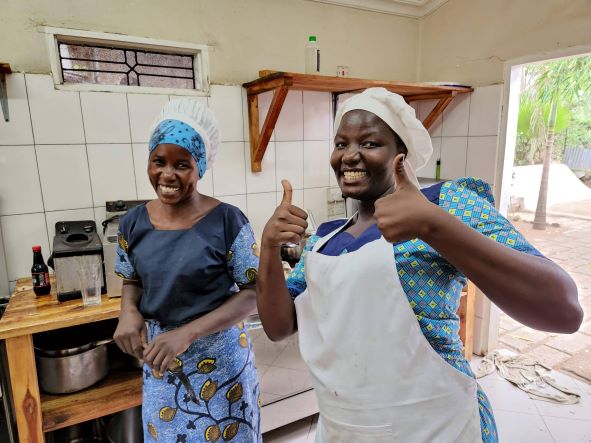
My last two weeks here easily the busiest with a flurry of activities I wanted to complete.
Saturday 11 June saw a record number of students graduate from Bunda Bible College. This is the largest cohort in the history of any college in the Anglican Church of Tanzania. Apart from the local bishop of Mara, three other Bishops being Musa Yamo from Rorya and former college principal with whom I worked closely from his appointment in 2016, Godfrey Mbelwa from Lweru on the other side of the lake whom I have worked with previously on various projects and Stanley Hotay from Mt Kilimanjaro who I met for the first time also made the journey.
It was a festive occasion, held outdoors under rented canopies and trees as guests spread out under shade from the equatorial sun. As the guest, I was asked to speak and prepared a speech/sermon (it turns out there was a church service) focusing on the role of the pastor. Students were suitably adorned in graduation gowns and I was provided with a cap and gown trying to make me look important.
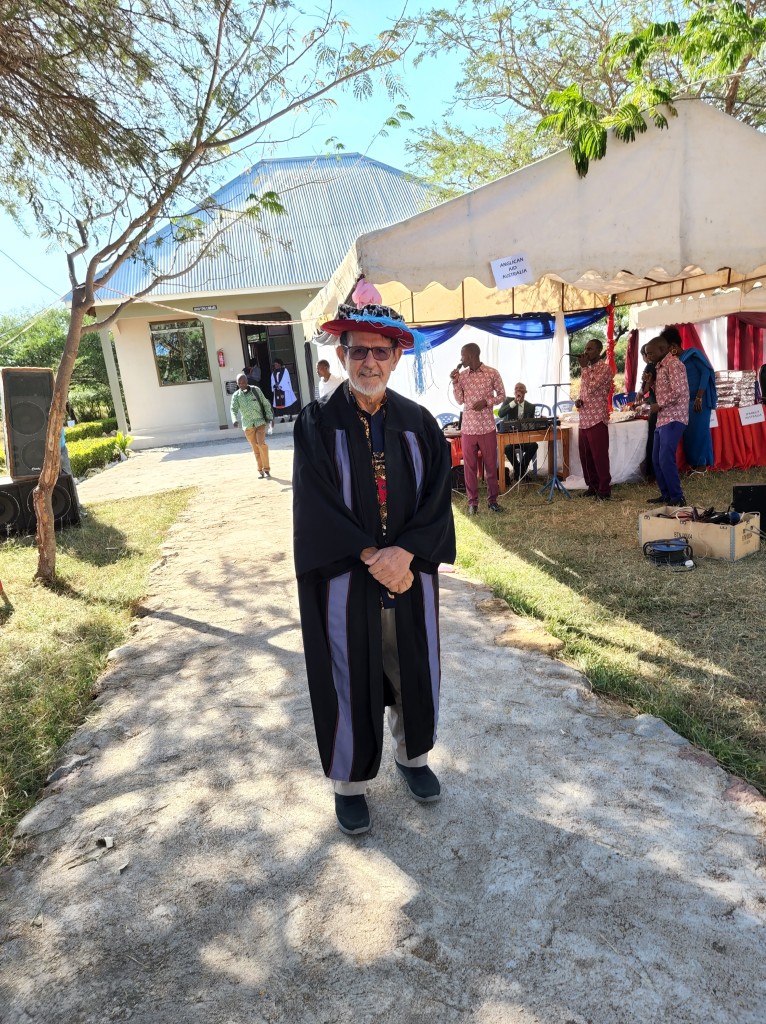
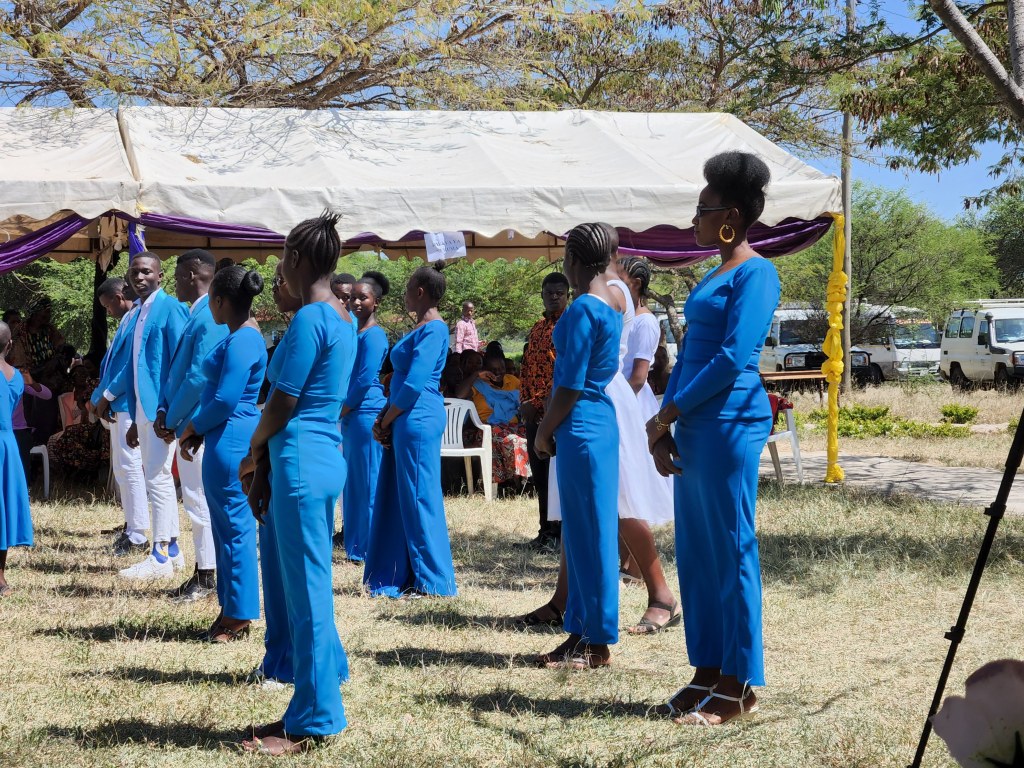
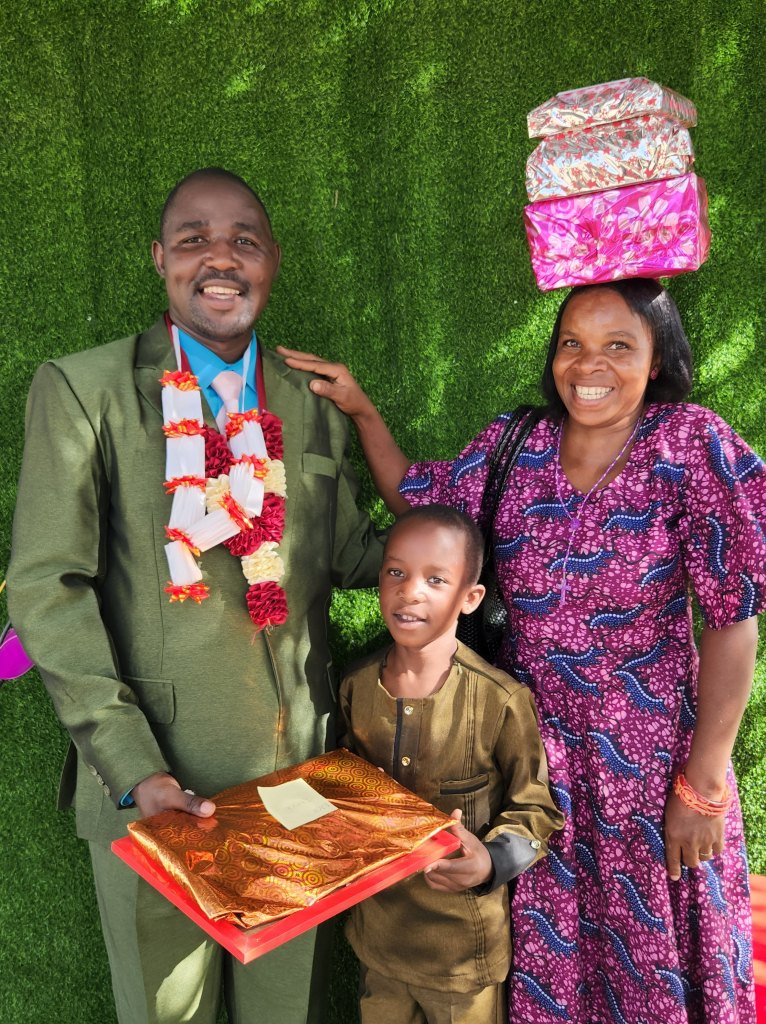
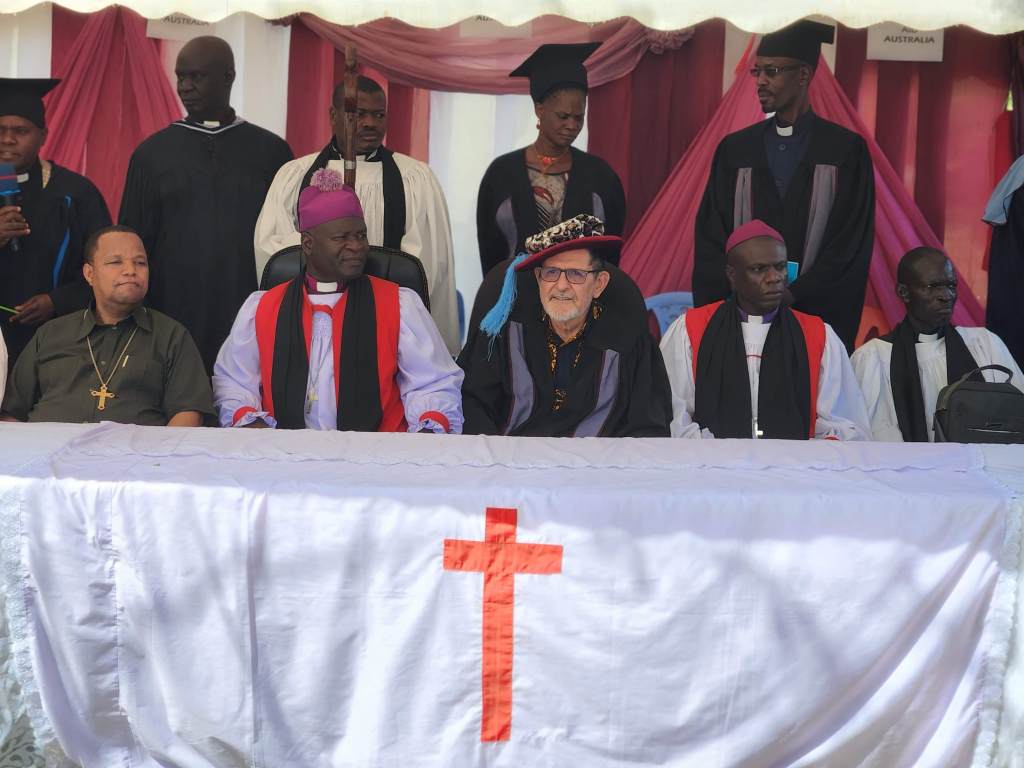
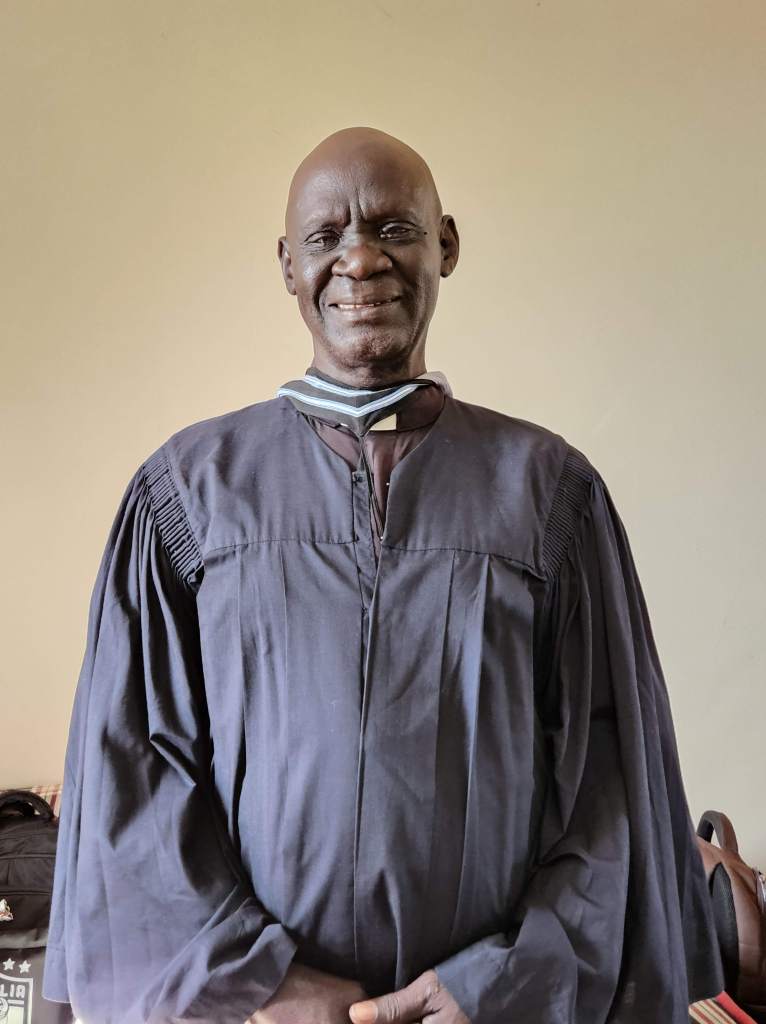
The diocese employed, on my urging, a young 28 year old guy who has been looking after the website as a volunteer. He had been an intern at a business in town for eighteen months (without pay) and when I met him he got the website up and running within an hour after being off line, unknown to many. Mwita is a nice guy who will feature in a later blog. Suffice to say of his family he is the only one to get to university. Apart from the website, I’ve had him producing a newsletter and looking at setting up an email system so all staff working with international partners use a common corporate email address. A lot of the last two weeks has been spent with him, editing material, teaching him the importance of getting things right, checking and double checking and setting up a database for the emails to be sent and learning Mailchimp (which he did amirably).
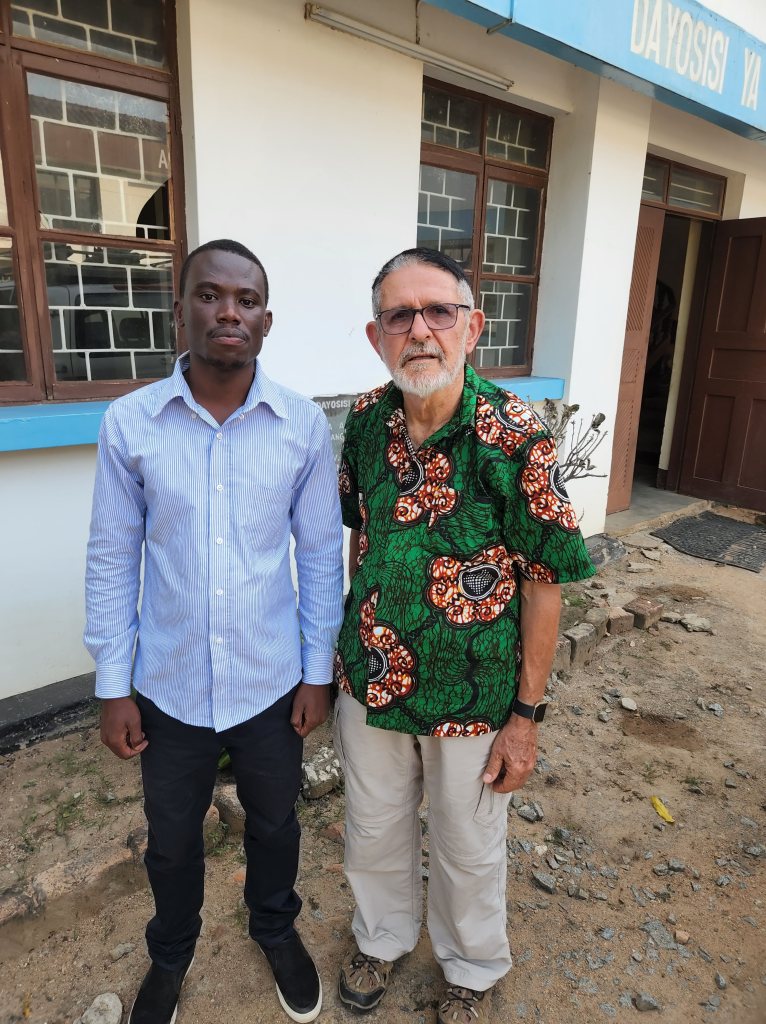
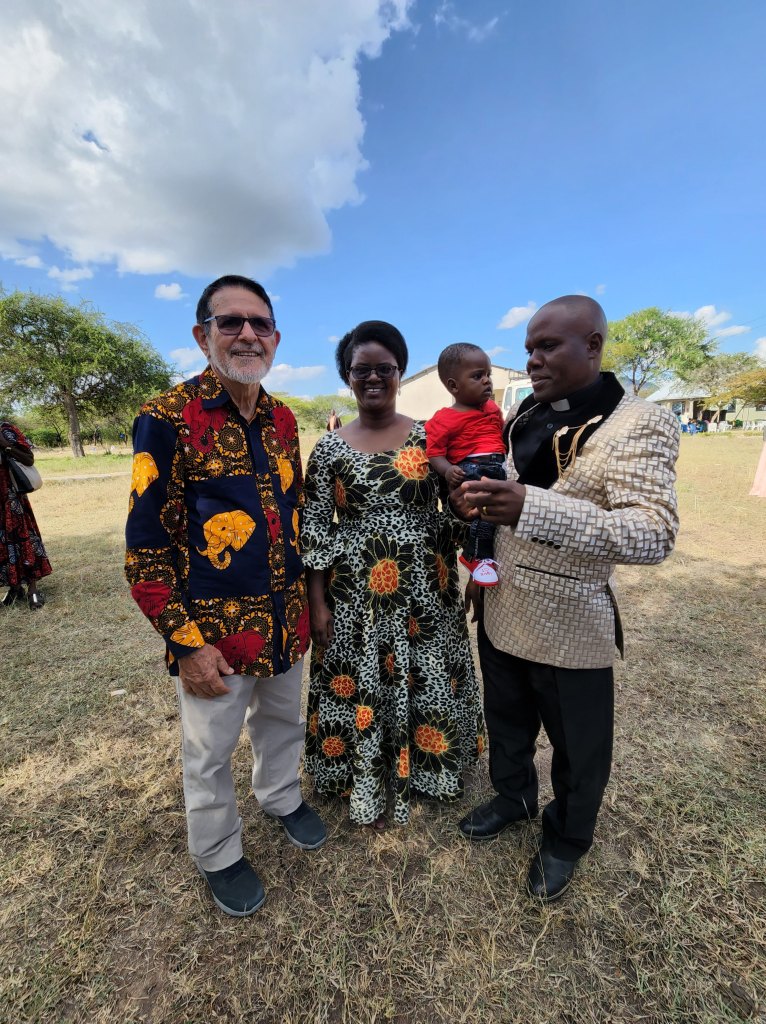
In the end one of my jobs was going through the bishop’s emails back to late 2020, adding to his contacts people he knew from overseas (he lived in USA for three years studying for his doctorate) and in addition adding other contacts and we ended up with 200 names. Tedious.
Yona Masinde is the Director of Christian Education and he grabbed me one morning to discuss training for pastors lacking formal education beyond the initial 3-6 months training they may have done many years ago. He had in mind a course from Moore College in Sydney and I put him in contact with the External Studies Department.
A visit to Nufaba Island took place on the Friday of my penultimate weekend. This was both a tourist adventure, but Max the diocesan secretary was born on this island in the 1950s and had arranged with a visiting Englishman to run a mission here to establish an Anglican church on the island.
Lake Victoria is huge, about four times the size of Tasmania and dotted with innumerable islands, some just uninhabited specks. Those that are inhabited are few and generally provide a base for nomadic fishermen who base themselves on an island for periods during fishing seasons, which are reducing due to the overfishing that occurs and undersized fish being captured. The lake is home to tilapia, Nile Perch and dagaar, a small sardine type which is not well loved but provides essential protein for the poor. You’ll see them in droves in any market in Kenya, Uganda and Tanzania, bordering Lake Victoria.
Getting there was the adventure. Loaded up with foam mattresses in the rear cabin of the 4WD, we set off from Musoma at 8am. Max, his wife and the Education Officer were in the rear huddled amongst the mattresses, seedlings and other assorted stuff being transported. We stopped an hour down the road at Bunda to collect a wooden bed frame which was carefully added to the top along with other furniture already tied up when we left Musoma. A chicken joined us for the trip. I wasn’t sure if it was lunch but I have travelled with many chickens during my stay. They are fairly unobtrusive passengers.
We dropped the Education Officer at Bunda Girls School for the day expecting she would make her own way back by bus. Chai was taken at the school and then we made our way west on Ukerewe Rd which soon became dirt. The road is being tarred in various places so for twenty kilometres we drove on unsealed roads on the side, impassable. Nafuba has no roads, electricity or water. People living there make the journey to the mainland to buy foodstuffs which is really their only contact with the outside world. It is a subsistenance lifestyle, reliant on cassava, some maize and of course fish. There are two villages. Max’s village is 9km from the village on the other side of the island, which has the school attended by kids from his village.
Max introduced me to six of his seven siblings, one being disabled and bedridden after being left for dead twenty years prior following a drunken fight and subsequently a stroke. He epitomized the significant disadvantages disability overlaid on poverty for those unfortunate to have a disability in undeveloped nations. A long day and 9pm before we got back to Musoma.
After lunch, prepared for all visitors including the boat crew, we made a departure back for the mainland and home. We arrived back shortly before 9pm. A long but interesting day seeing the challenges a church has in establishing churches in very remote areas.
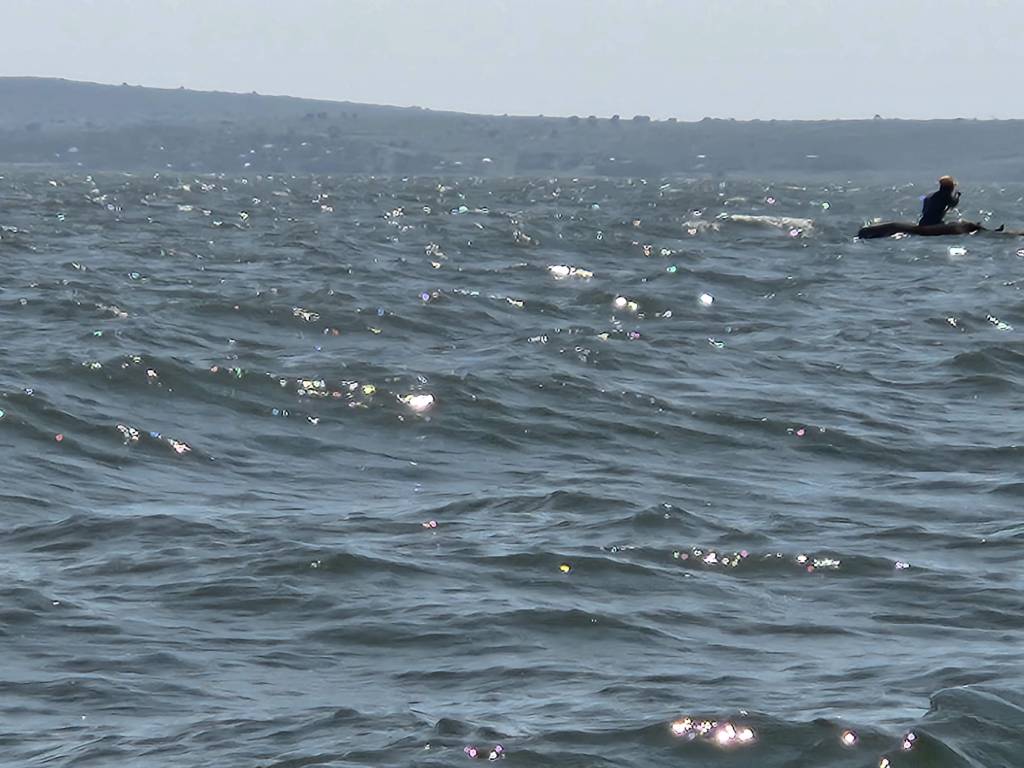
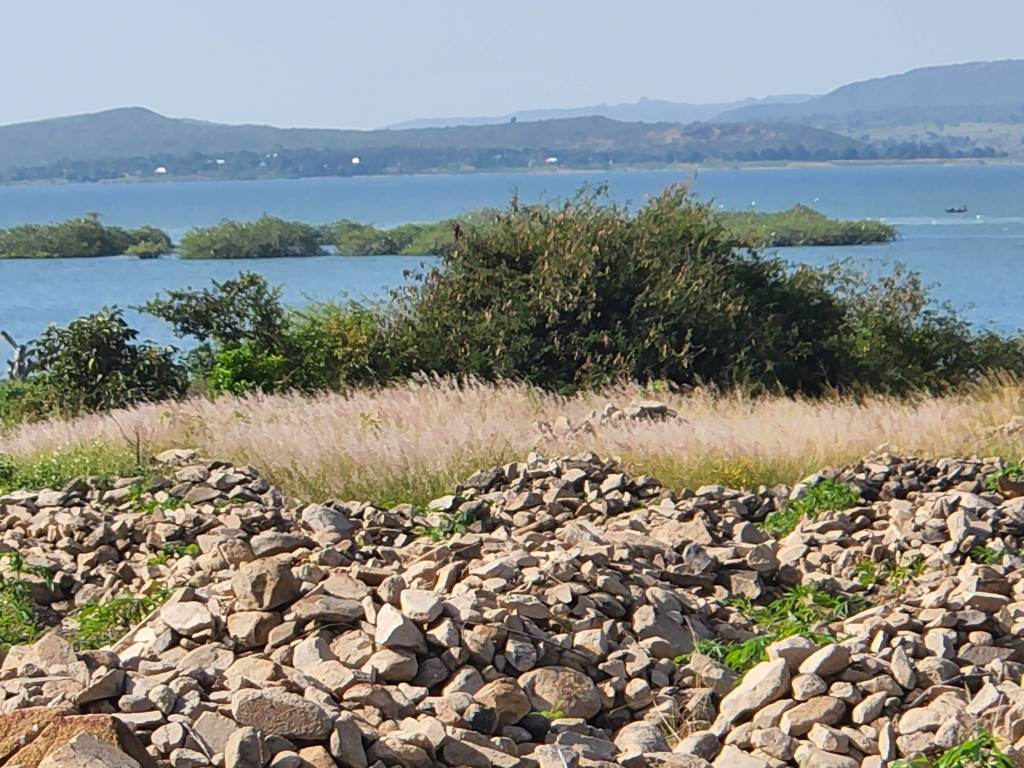
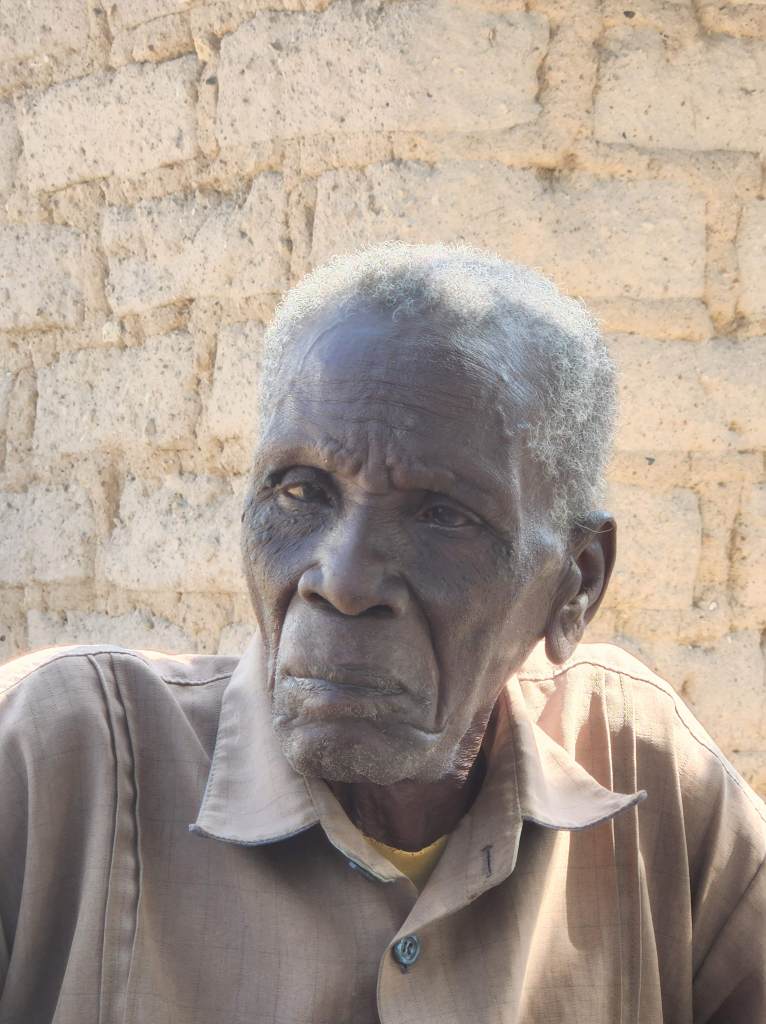
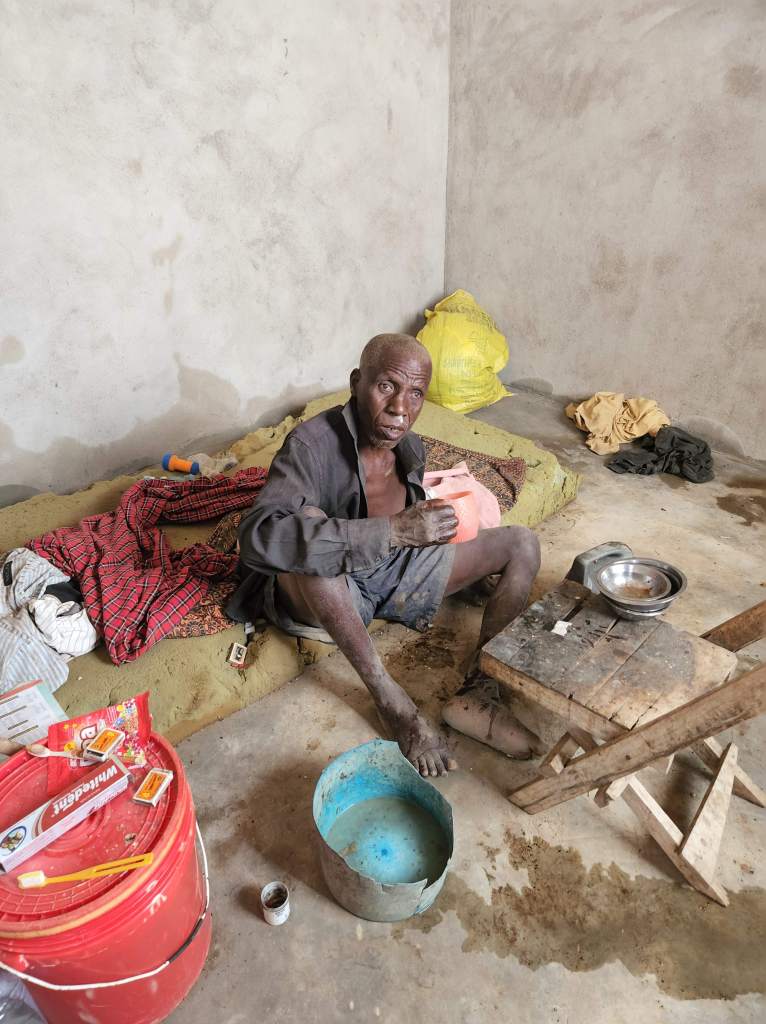
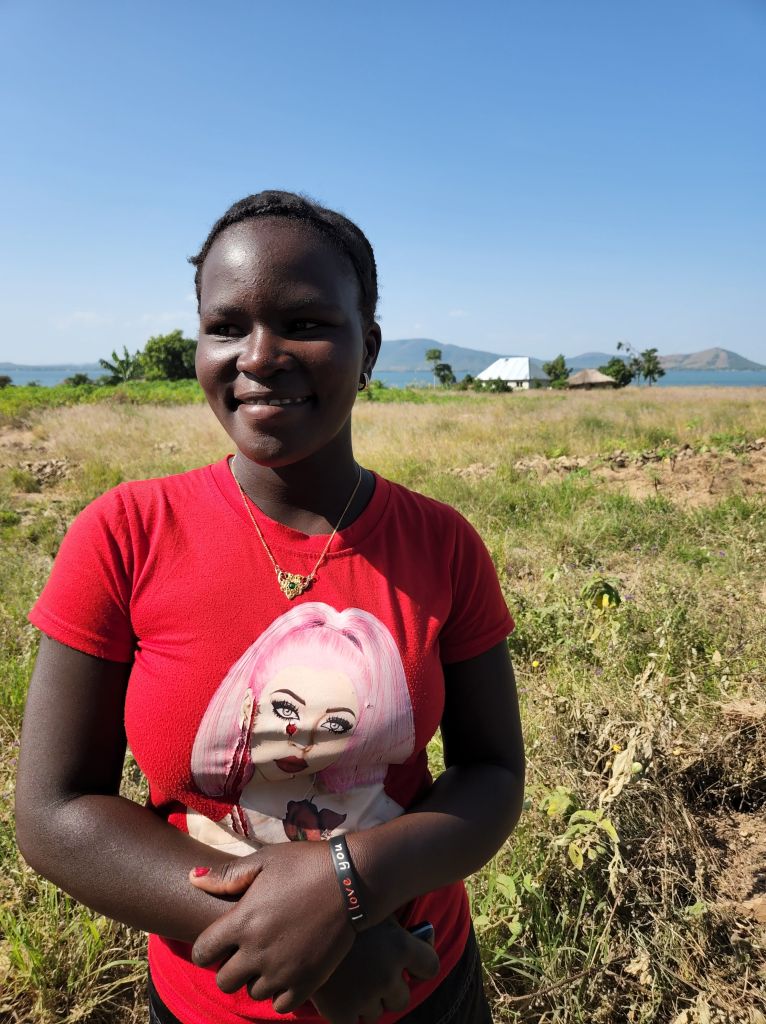
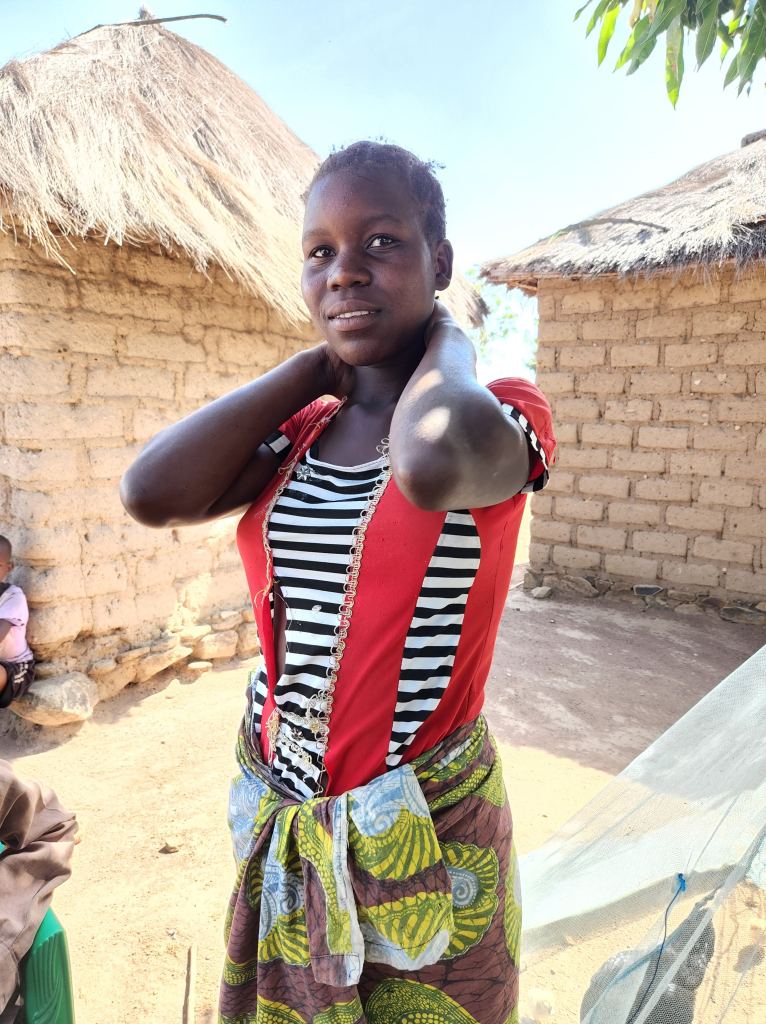
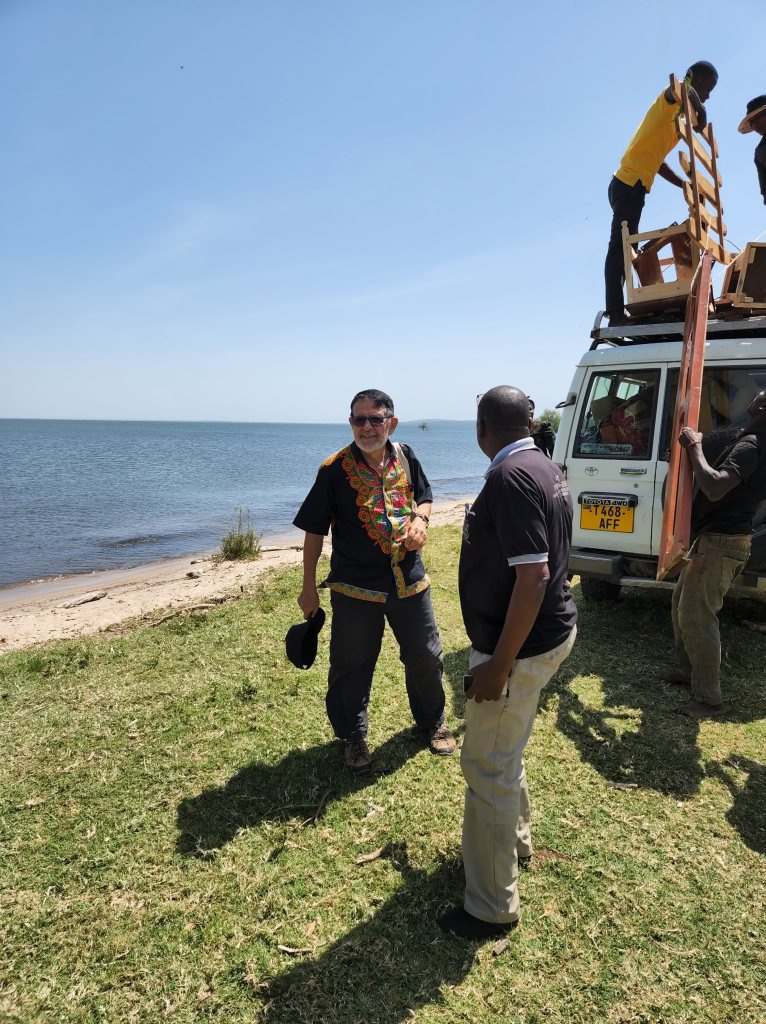
Two further strategic planning workshops occurred in my last few weeks, one each in Musoma and Bunda, with English speaking staff who were generally leaders of schools and other institutions. This was outlining what a SP is, the need for it and gathering data for it via a SWOT analysis. I will have the task of finalising this before I leave in October to allow the executive to finalise a long term plan. Both groups went well and were illuminating for staff who had little knowledge of what a SP is or ever been invited for input. The bishop was clear he wanted it built from the bottom up.
Probably the highlight of my time here has been the return of Helen, a long term missionary in Tanzania for over thirty years, who went home in early 2020 (before COVID) was diagnosed in Australia with pancreatic cancer and had surgery and remarkably no chemo. Greatly loved by all in Mara she arrived on Sunday 19 June to a formal reception and speeches in Musoma and met the following day with the bishop. I drove down with her to Bunda where apart from the SP workshop on Tuesday, we spent Wednesay visiting schools to finalise building plans funded by a foundation I am secretary to and meeting the builder to go through plans.
Helen was met at Bunda by the Girls Brigade Sewing Centre she established and our car took 11 minutes to drive the 500 metres from the main road to her home as the girls walked in front, singing, ululating and waving palm branches and laying them on the road in front as I drove down (similarities to Palm Sunday are allowed at this point).
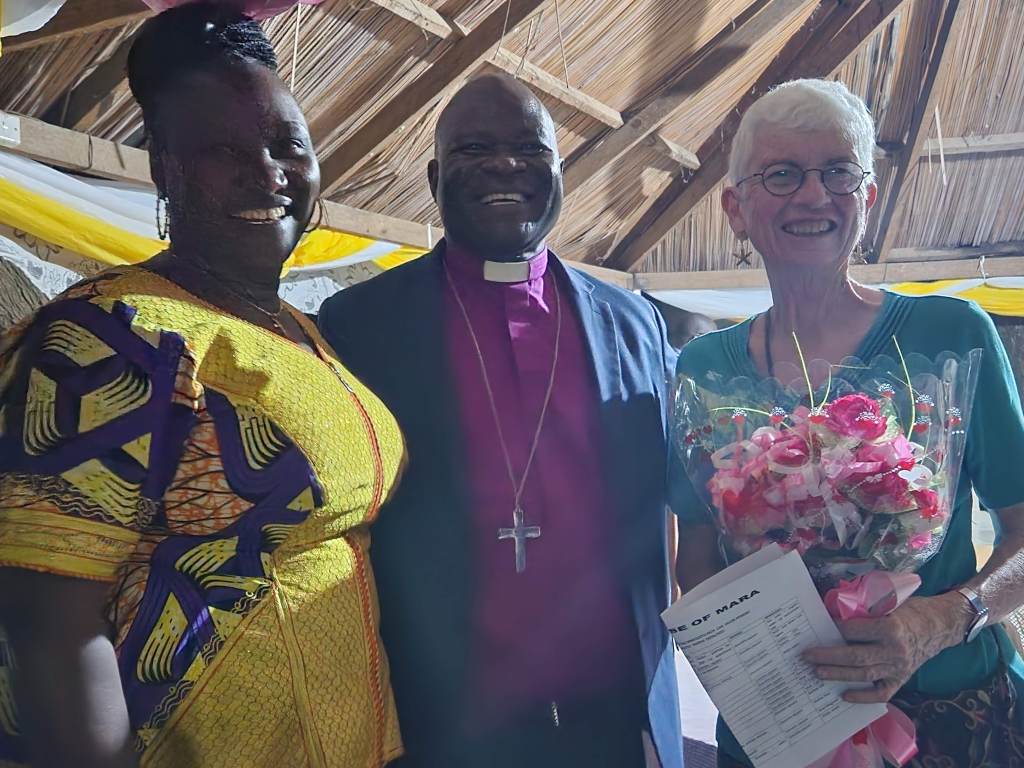
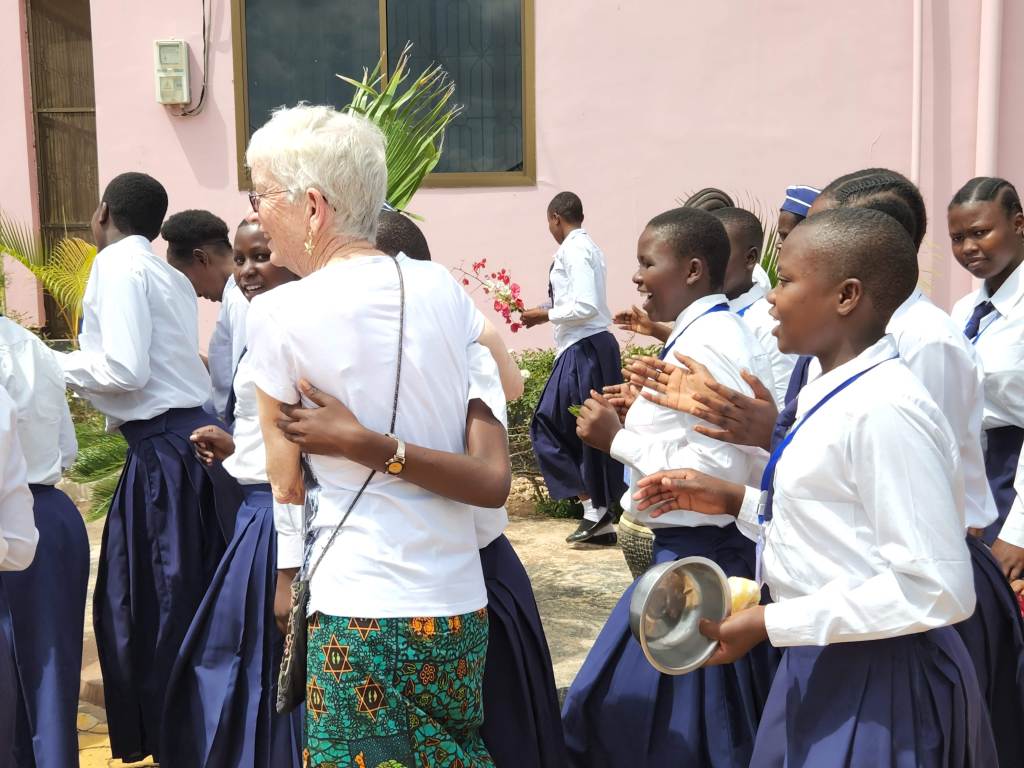
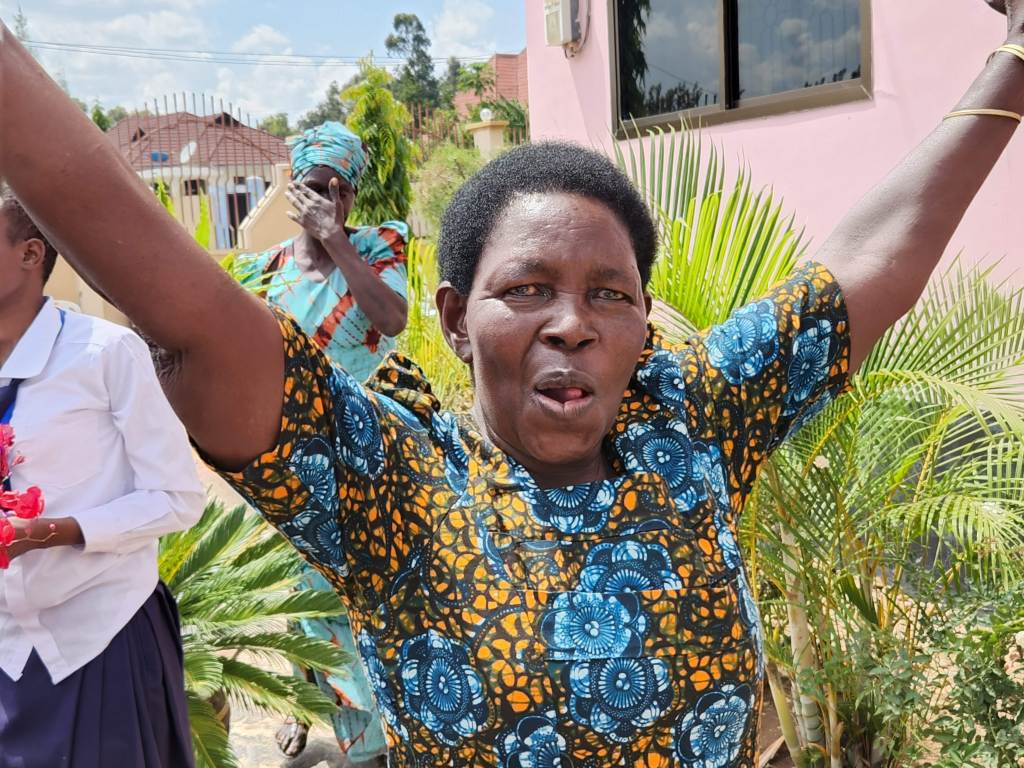
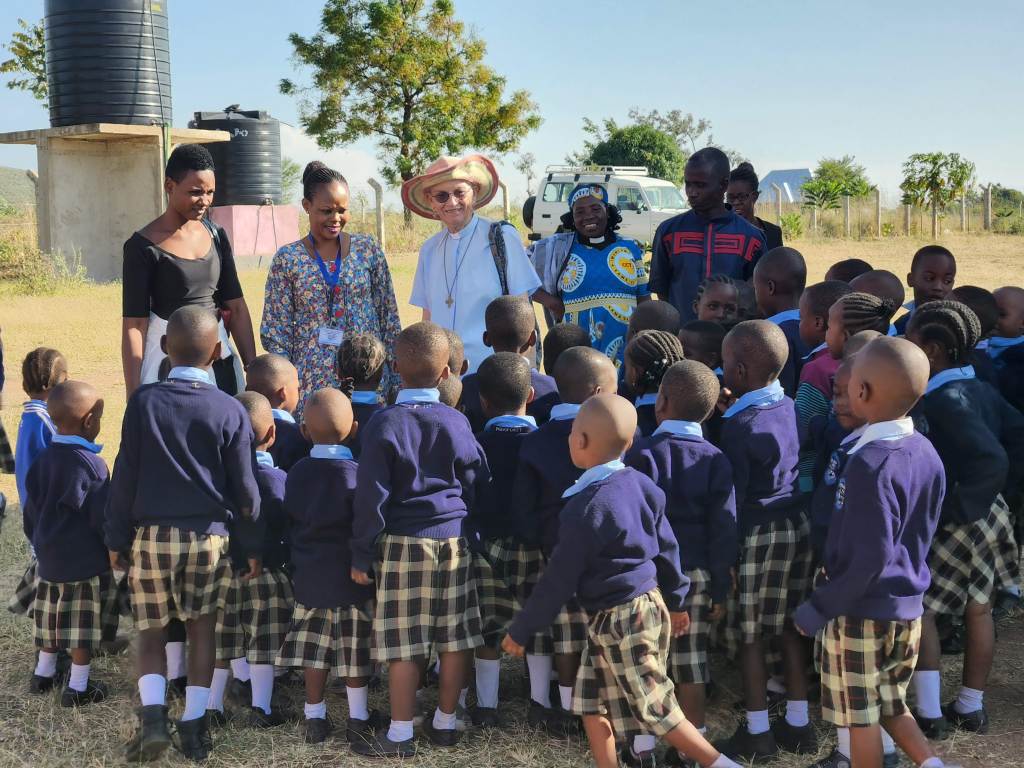
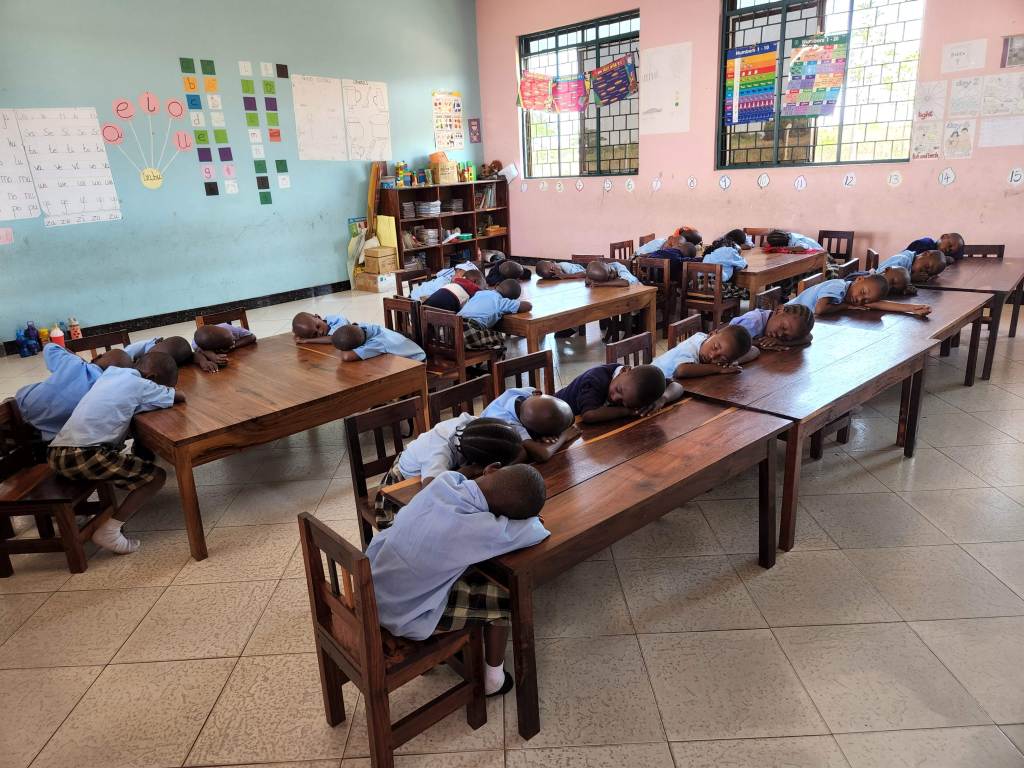
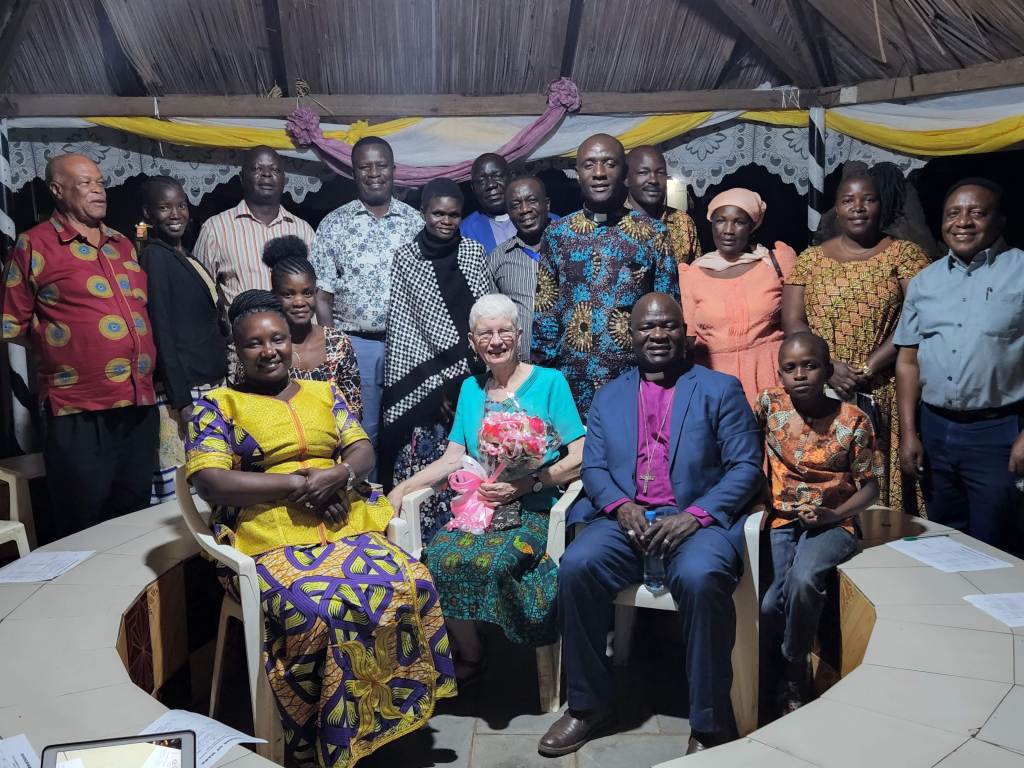
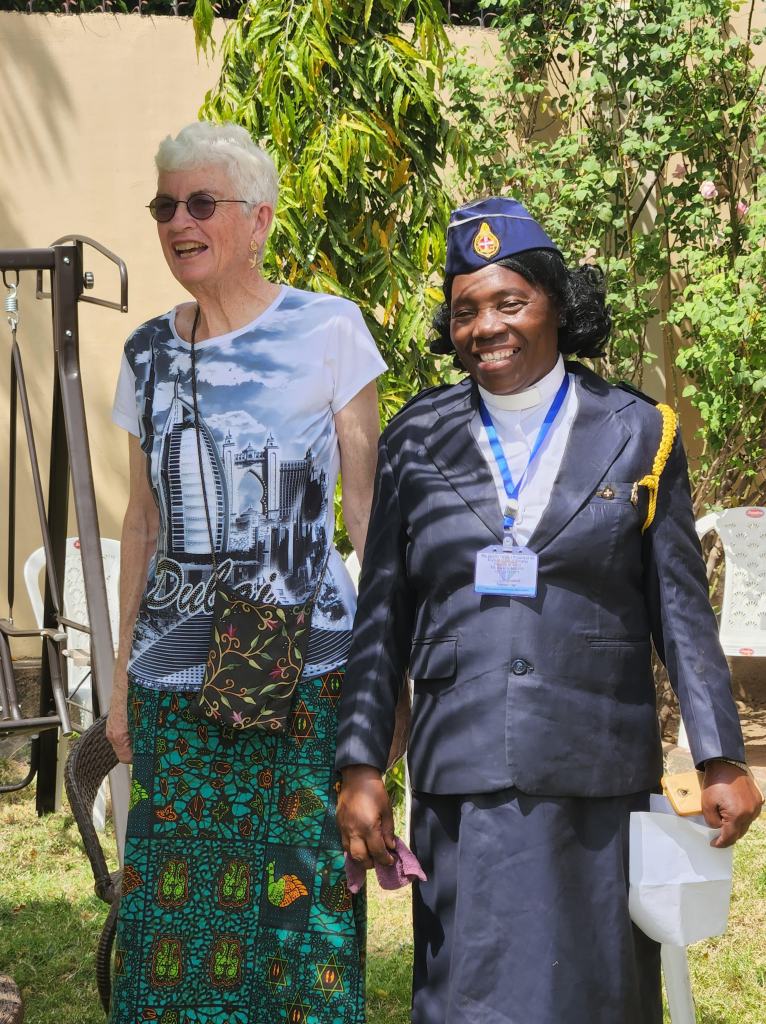
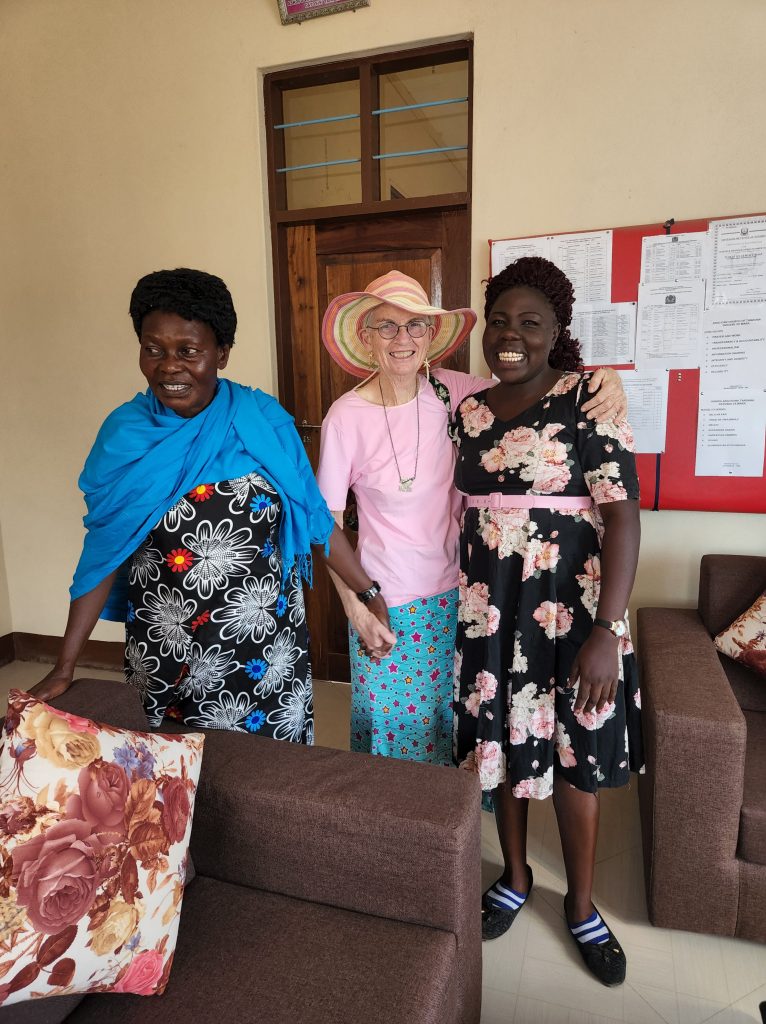
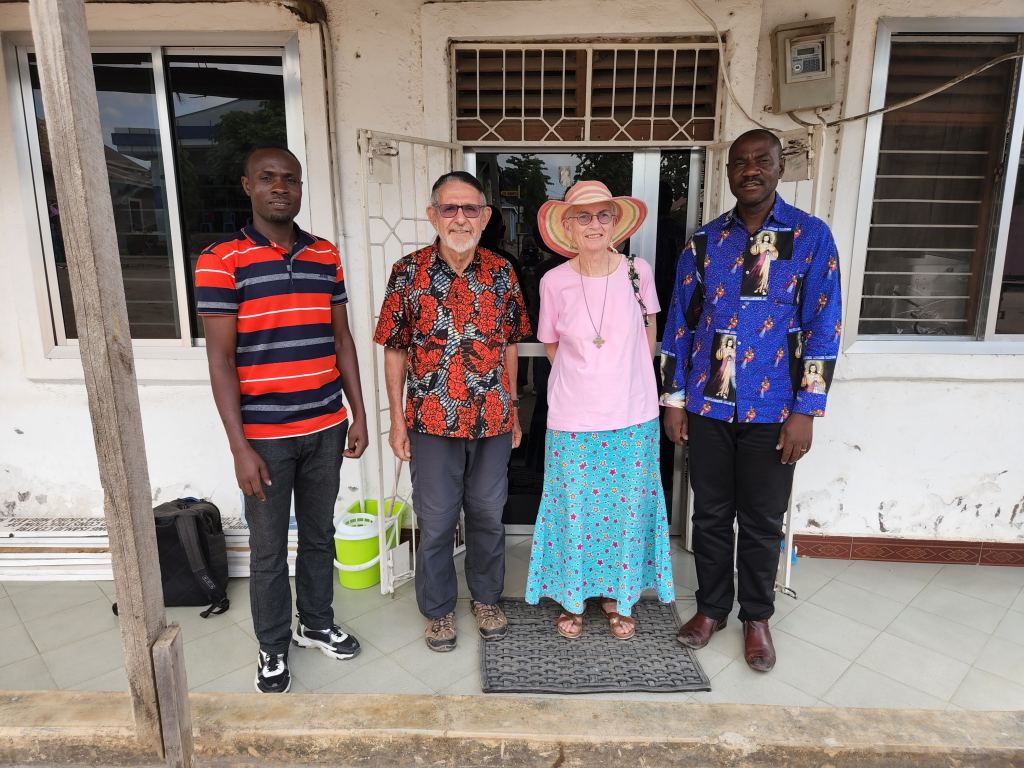
My last week effectively had me in the office only one day as I spent Mon-Wed in Bunda with Helen as we had various matters to discuss around the schools, running the workshop and meeting the builder. Thursday was scrambling to get everything completed including the newsletter which was eventually dispatched Friday morning as Mwita struggled with getting Mailchimp addressee perfect (at my insistence). The mailing list ended at 200 and initial results showed better than 40% opening and two emails from people who had not had contact from the bishop for some years. So a good finish to my time here.
Friday I had been invited to go with the bishop to what I thought was an opening of a regional Mothers’ Union Conference in Tarime. 360 women from Lake Victoria region gathered, sang and were meeting for three days. Nothing is short here and after all formalities were done the bishop of Tarime, Rt Rev Mwita Akiri called me up front for what I thought was the standard meet and greet and answer a few questions. I was not aware that I was was about to have the greatest compliments spoken about me ever, culminating in him making me a lay canon of his cathedral, followed by Musa Yama, bishop pf Rorya doing the same. Great honour for me for the work I did when I was employed at Anglican Aid. Mwita’s words however were very humbling.
So my initial time here is up. My visa allows me ninety days at a time. I had initailly planned to leave early June, but the war in Ukraine meant the holiday we had planned was scuppered as the ship we were to cruise on is now housing 1500 Ukrainians. We had literally three days prior to me leaving to reschedule our trip and as I conclude this from Klaipeda in Lithuania there are no regrets about the changes. The Dutch government committed to house 50,000 Ukrainians and the Dutch waterways are an ideal home with so many waterways. A few ships housing Ukrainians from where they can go to school, work etc is a novel way of providing humanitarian aid.
My last Sunday saw me preach at the English service, duck off for my COVID test at the hospital next door and then travel to Mwanza four hours away to catch the early morning flight to Dar Es Salaam for my flight to Amsterdam. As I was leaving that plane, I got a notice from KLM that my flight on 27 June had been delayed and they had rebooked me to fly on 30 June! Mild panic as I made my way to the terminal, knowing KLM were unlikely to have staff here. In the end to cut a long story short I flew Emirates direct to London and will let insurance sort out the rest.
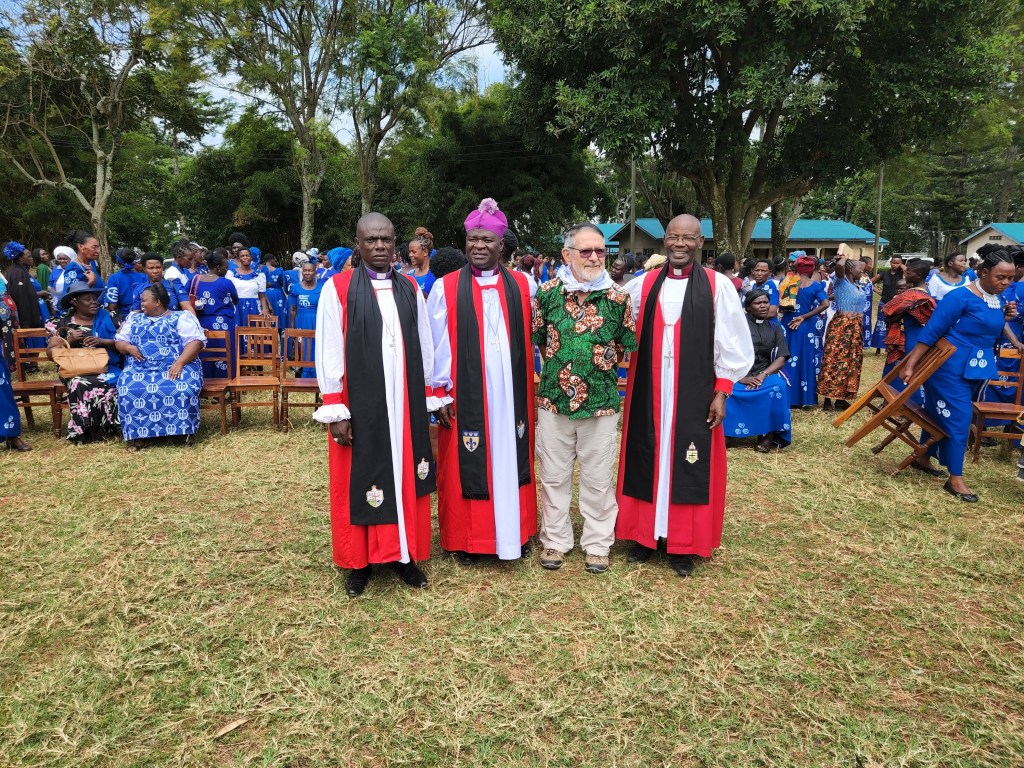
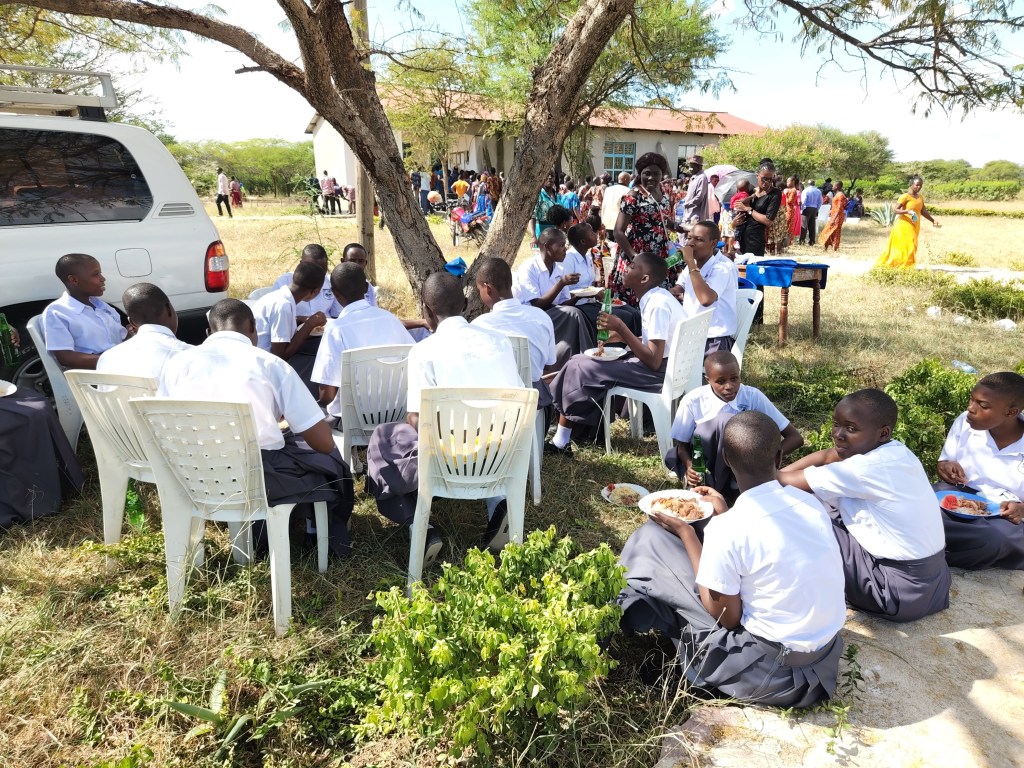
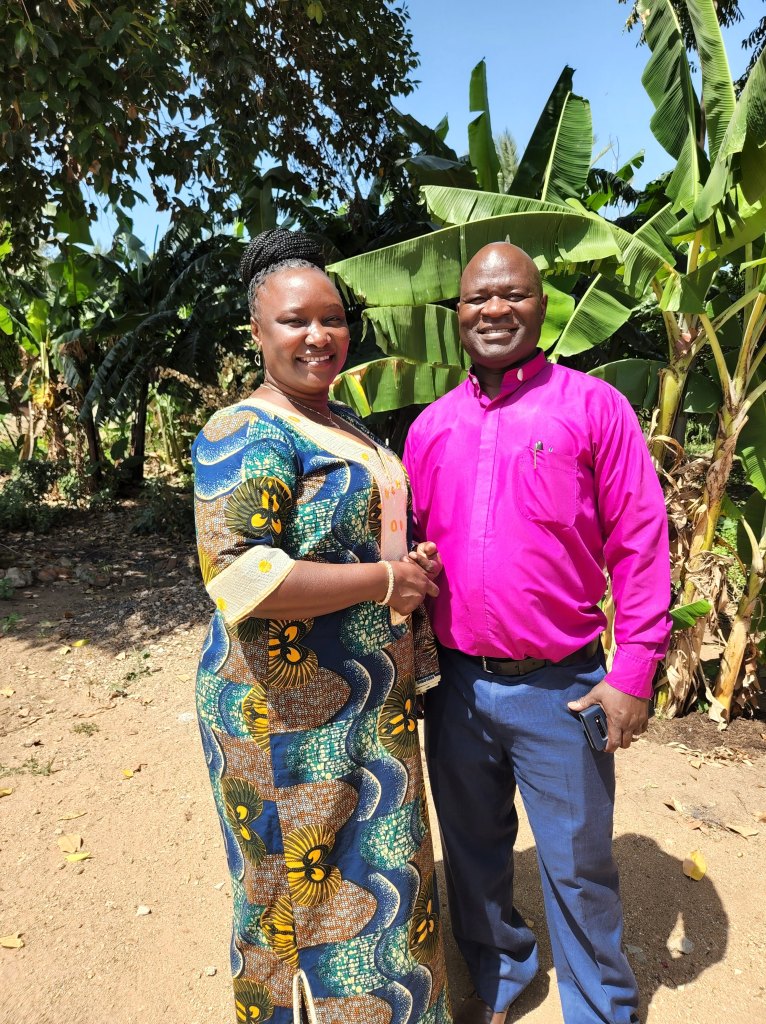
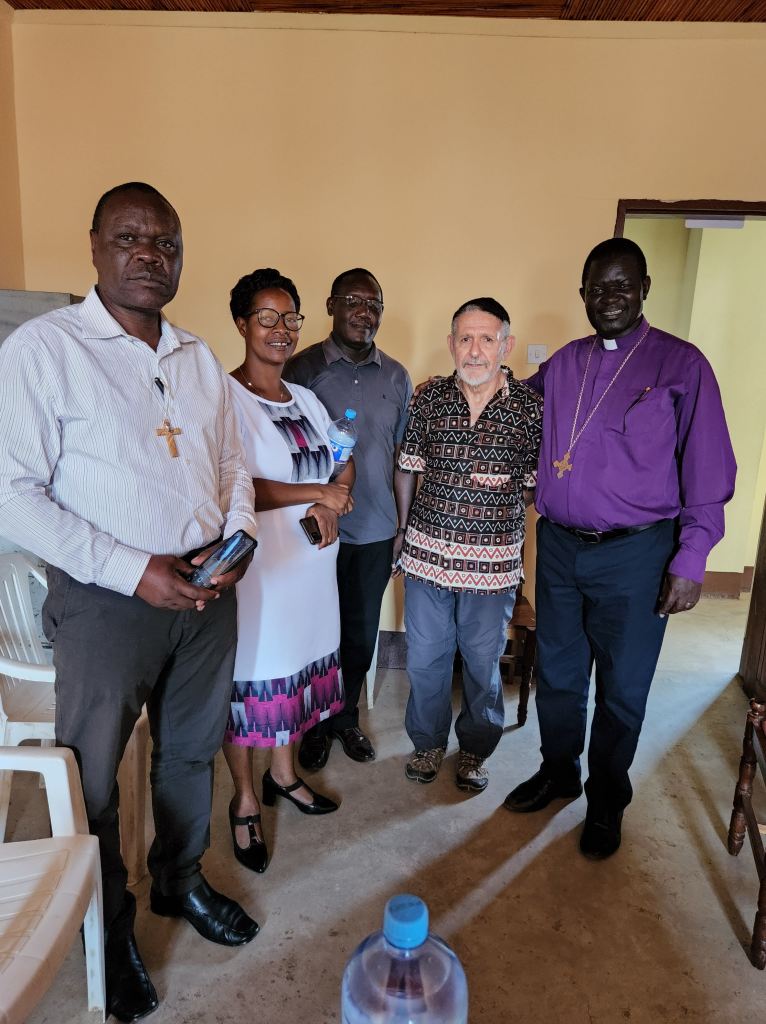
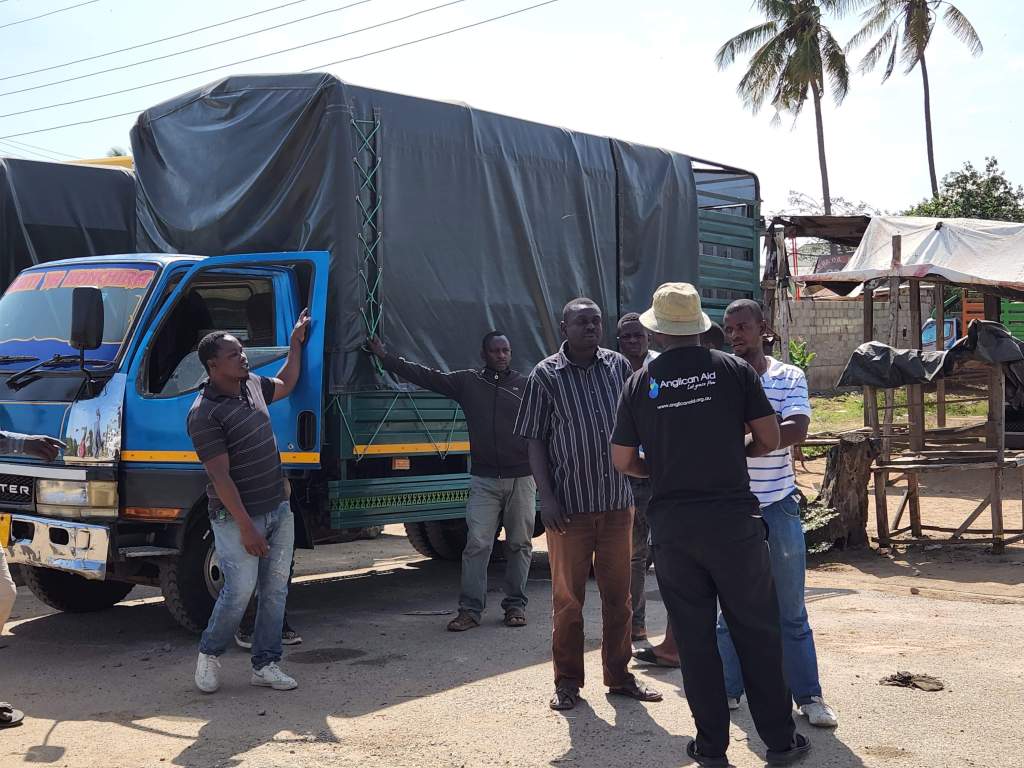
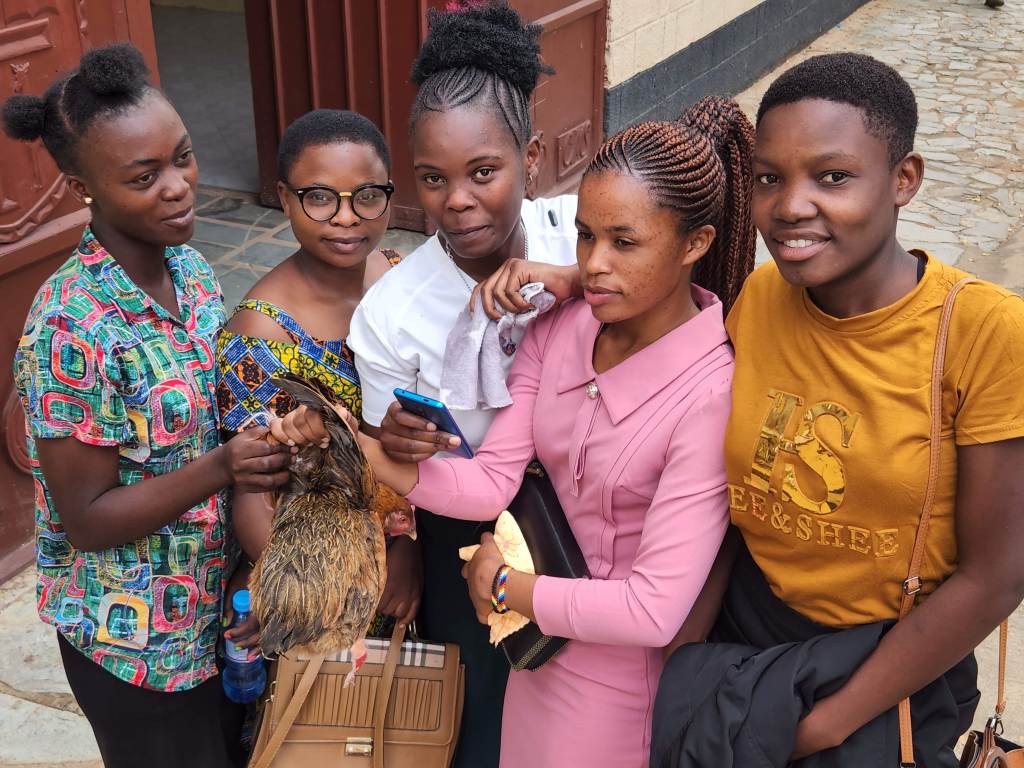
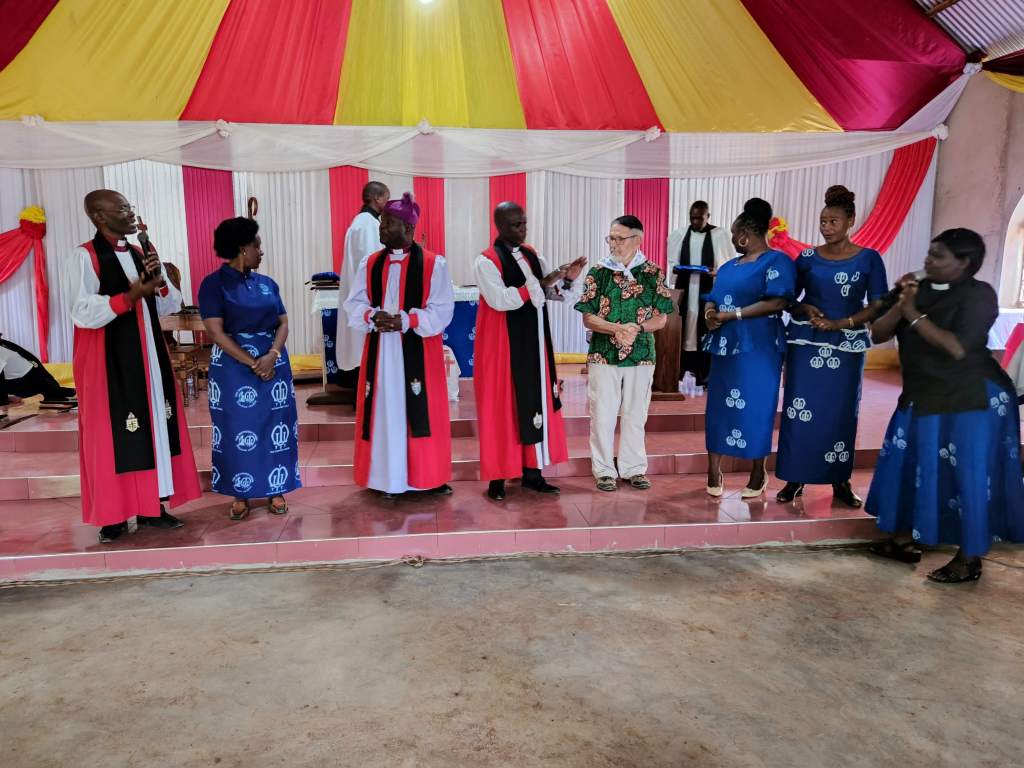
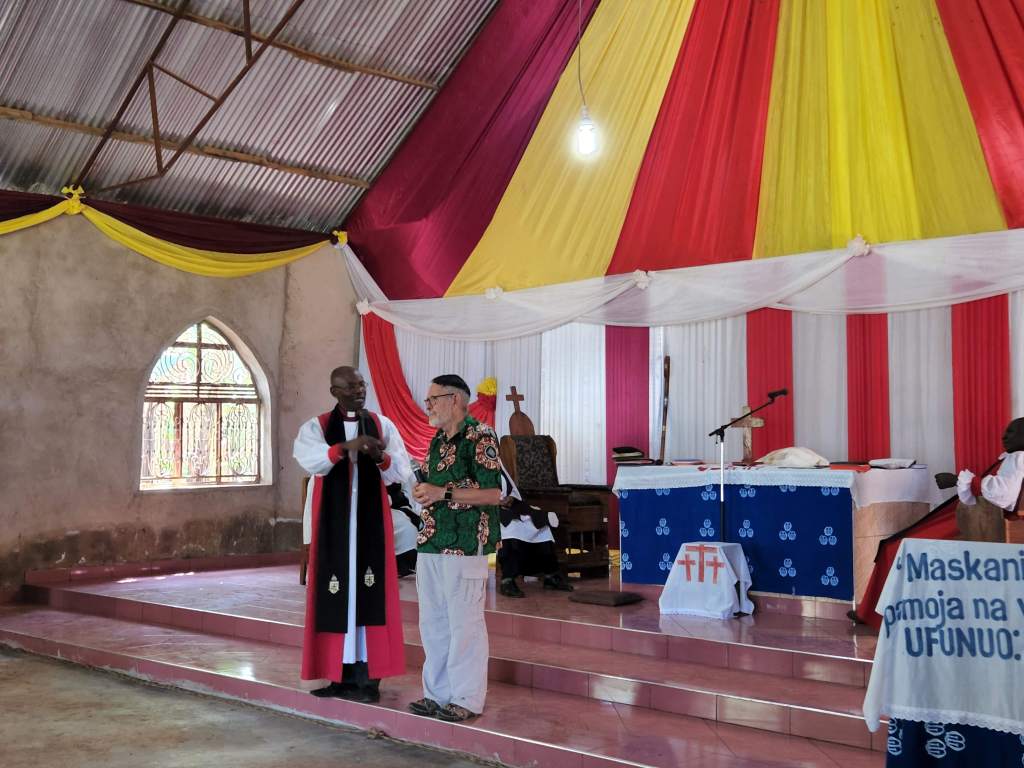
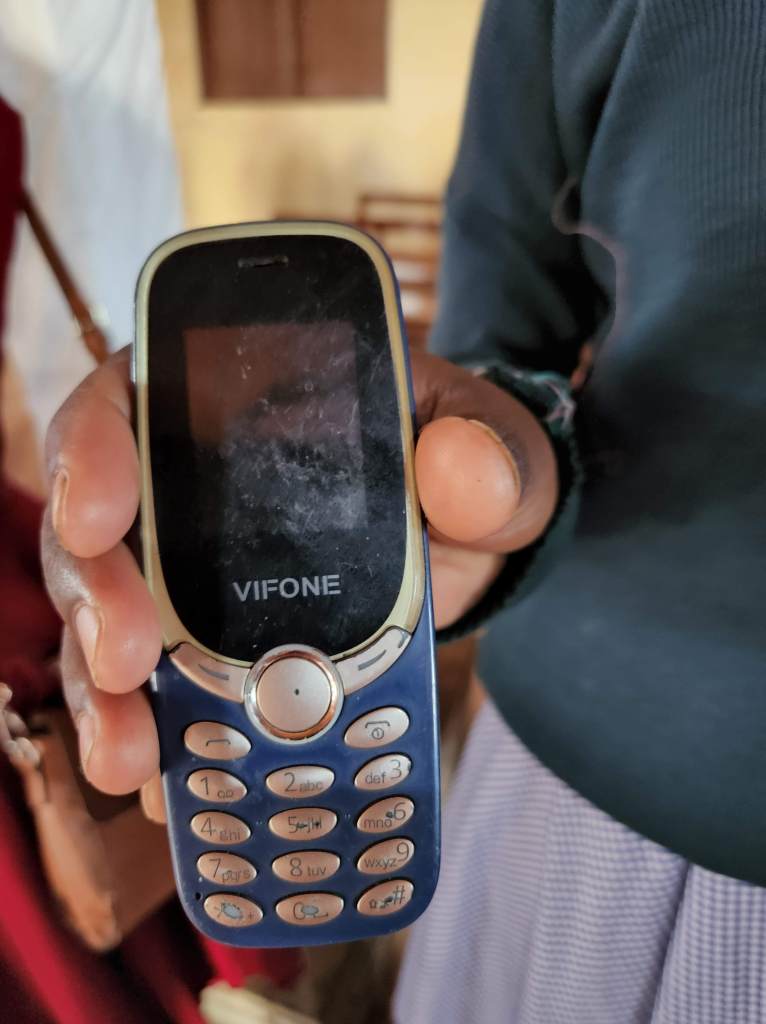
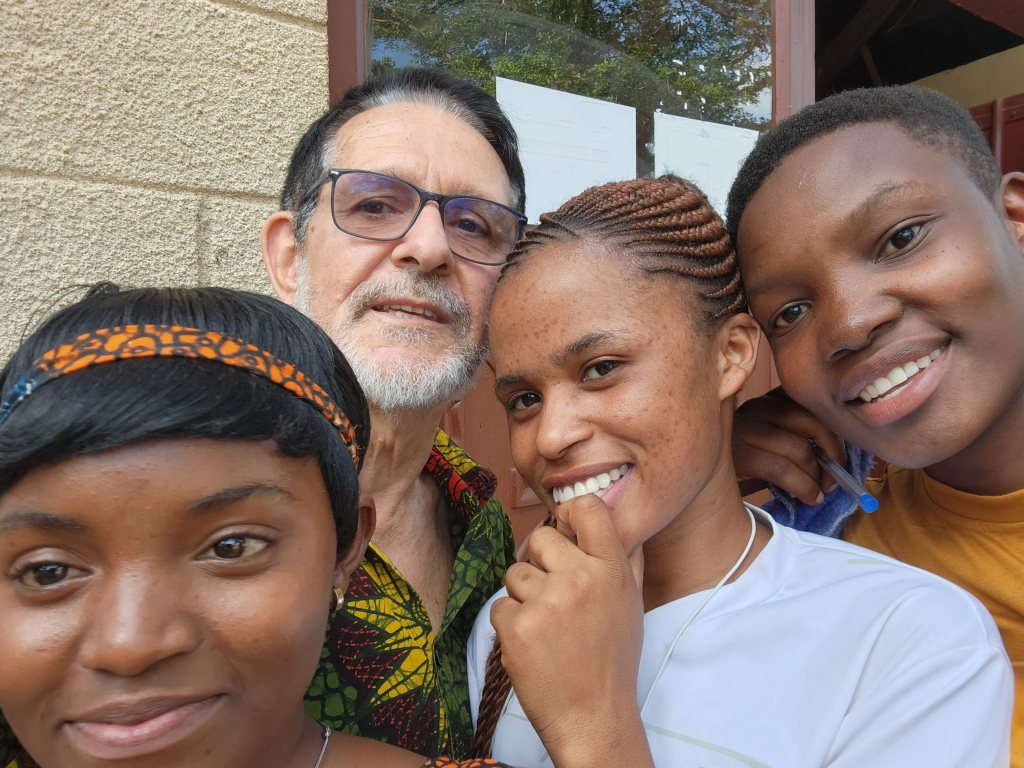

Back in Tanzania mid August.



